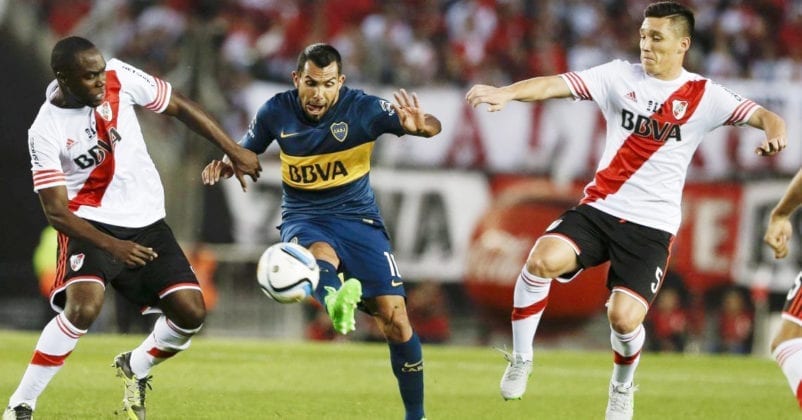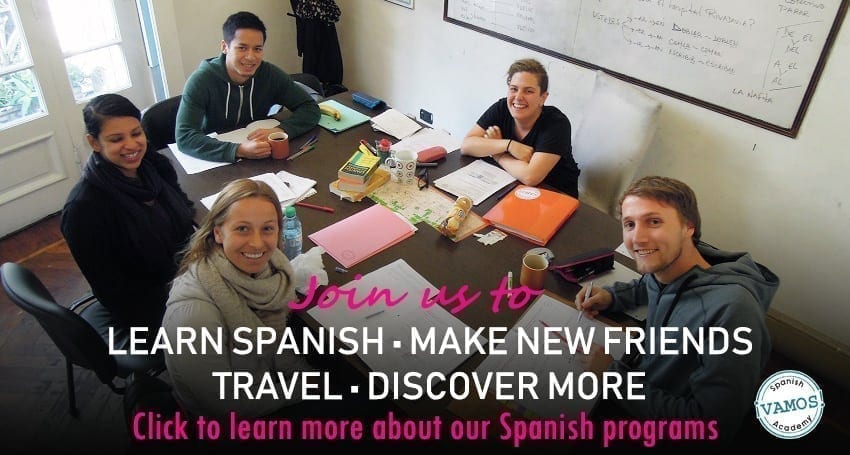A SuperclÁsico like no other in the ‘Match of the Century’ – Copa Libertadores Final 2018
Over two Saturday nights, the 10th and 24th of November, Boca Juniors and River Plate will contest the final of the ‘Copa Libertadores’- South America’s answer to the UEFA Champions League. Dubbed various pseudonyms by the worldwide press, including ‘The Match of the Century’, ‘The final of all the finals of football’ and even ‘The biggest sporting event of all time’. It is clear that this is a game not to be missed. It is easy to see why Boca captain Pablo Perez admitted to “not enjoying” the build-up to the game!
Before the final, let’s take a look at the significance of the Copa Libertadores trophy, how both teams got to the final, and the key battles which could decide the match itself.
The Copa Libertadores
This season is the 59th edition of the Copa Libertadores. Independiente is the most successful club in the history of the competition- with 7 titles, the last of which was in 1984. River has just 3 wins in this competition to their name, fuelling the idea that they are perennial underachievers on the continental stage. One reason why this season’s final is so important is that Boca could equal Independiente’s record of 7, while a victory for River would take their total to 4 and securing 2 titles in 3 years would help to dampen the idea of them being continental underachievers.
One reason why these years’ final is so special is that the Copa Libertadores final will be contested in a completely different way next year. The 2018 final is to be the last contested over a two-legged format: from next year on, the final will more closely resemble the Champions League with the final decided in one game at a neutral ground. As a result of South American travel being quite expensive, it will be harder for genuine supporters of teams to make the final in the future- for example, a final of Gremio (Brazil) and Racing Club (Argentina) played in Columbia will be very hard and expensive for fans to travel to. Also, as a result of this change, the opportunity for either River to lift the trophy in front of their own supporters, or for Boca to perform a lap of honour at the home of their greatest nemesis is unlikely to present itself again for a long time.
It is also important to remember that the winner of the Copa Libertadores does not just win the title, but also the chance to play in the FIFA Club World Cup Championship in December and potentially a prestigious tie against European Champions Real Madrid awaits.
Route to the Final
After just 1 win from their opening 5 group games, Boca had to rely on Palmeiras to beat Colombian side Junior in the final group game, while they had to beat Alianza Lima. A 5-0 Boca win, and a Palmeiras victory ensured that Boca progressed to the round of 16. Boca was drawn alongside Libertad, a team from Paraguay in the round of 16- a team featuring Oscar Cardoza who will be familiar to most European football connoisseurs and avid players of FIFA and Football Manager games. Boca comfortably progressed with a 6-2 aggregate win. In the quarterfinals, Boca came up against the Brazilian side Cruzeiro and, following a comfortable 2-0 first leg victory, travelled to Belo Horizonte. Cruzeiro scored first in the second leg to set up a grandstand finish, but a 94th-minute equaliser, accompanied by some truly comical Cruzeiro defending, sealed Boca’s progress to the semi-finals.
In their semi-final, Boca had a reunion with their group stage counterparts Palmeiras, managed by former Chelsea and Brazil manager Luis Felipe Scolari. Having lost and drawn in the group to them, and facing the tournament favourites, Boca were seemingly facing huge odds to reach the final. For the third consecutive round, Boca secured a win and, more importantly, a clean sheet at home with a 2-0 victory and a 2-1 away win sealed Boca’s progress.
By comparison, River Plate had a rather less eventful group stage than Boca- progressing with a game to spare following draws against Flamengo (Brazil) and Santa Fe (Venezuela) and back to back wins against the Colombian minnows Emelec. River then faced consecutive opponents from Greater Buenos Aires in the next two rounds- with strong defensive away displays, and comfortable home victories against Racing and Independiente seeing them through to the semi-finals.
If River’s run so far had been rather unremarkable, their semi-final more than made up for it. A 1-0 first leg defeat at the hands of current holders Gremio seemed to end Rivers hopes of making the final. Having never been defeated at home in the Copa Libertadores, Gremio appeared to have secured their passage to the final when they were leading 1-0 with 10 minutes to go in the second leg. However, a header from Borre in the 81st minute set up a remarkable end to the game. An intervention by VAR led to a penalty being given to River in the 86th minute (although the penalty itself was not actually taken until the 94th due to extensive protests from the Gremio players). After 14 (fourteen!) minutes of injury time, ugly scenes involving riot police escorting the referees from the pitch somewhat marred an extraordinary semi-final.
Key players from Boca and River Teams
Cristian Pavon– The Argentine has been a key player in Boca’s run to the final, with 3 goals and 5 assists- more than any other Boca or River player in the competition. The 22-year-old right winger already has 11 Argentina caps to his name and is rumoured to be of interest to some major European clubs. Pavon has just recovered from a slight injury, so it will be interesting to see how much damage he can inflict on the attack-minded River fullbacks on Saturday.
Wilmar Barrios– A Colombian defensive midfielder, Barrios was heavily linked with Tottenham Hotspur in the summer after some impressive displays in the World Cup. He made more interceptions and tackles than anyone else in Boca’s second leg win against Palmeiras. Barrios will be crucial in Boca’s defensive efforts, particularly in the away leg.
Juan Fernando Quintero– After making a big impression at the World Cup for Colombia, the 25-year-old appears to finally be filling his potential. After a tough spell at Porto, where he was accused of a poor attitude and being overweight, the playmaker has been key for River this season. He has created more chances than any other foreign River or Boca player this season in the competition so will be key in River’s efforts to unlock the Boca defence.
Exequiel Palacios– The 20-year-old is reportedly on his way to Real Madrid for the 2019/20 season, showing how highly rated the Argentine is. The central midfielder won his first two Argentina caps in September and his box-to-box style, as well as his passing vision and composure, will be vital for River.
The Conclusion
Both Marcelo Gallardo (River Plate manager) and Guillermo Barros Schelotto (Boca manager) know that true iconic status in Argentine football is within touching distance, as well as improved job prospects for the highly prestigious Argentina national team job. The first leg, played in Boca’s ground of La Bombonera, is expected to be a tight and tense affair- away goals do not count in the Copa Libertadores so River has no real incentive to attack. However, the second leg in River’s Monumental de Nuñez Stadium, where Argentina won its first World Cup in 1978, will be where the tie and home of the Libertadores are decided.
Written and contributed by Liam who is currently living in Buenos Aires and studying Spanish at Vamos Spanish Academy.
Vamos Spanish Academy offers Spanish Group Classes, Individual Lessons, Private Group Classes and Online Spanish Classes. We can help you pick up the language no matter what your needs are.







